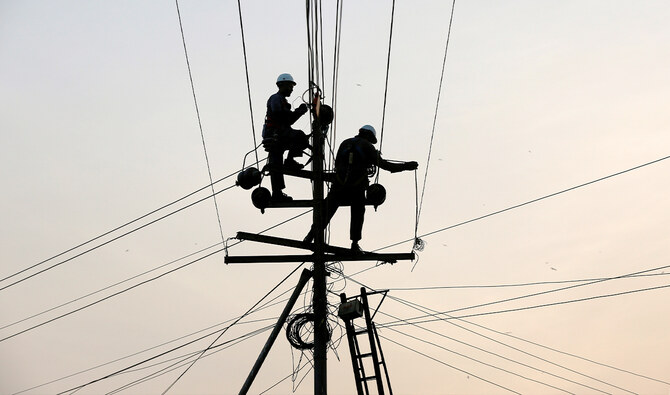KARACHI: The International Finance Corp. and other global financial institutions have urged the Pakistan government to rethink its move to renegotiate power purchase agreements (PPAs) with wind and solar energy producers, saying contracts with independent power producers (IPPs) cannot be amended without prior lender approval, according to a letter seen by Arab News on Tuesday.
Last month, the Pakistani cabinet approved revisions to agreements with 14 IPPs to lower electricity tariffs for households and businesses and save approximately Rs1.4 trillion ($5 billion) for the national exchequer.
About a decade ago, Pakistan approved dozens of private projects by IPPs, financed mostly by foreign lenders, to tackle chronic shortages. But the deals, featuring incentives such as high guaranteed returns and commitments to pay even for unused power, resulted in excess capacity after a sustained economic crisis reduced consumption. Short of funds, the government had built those fixed costs and capacity payments into consumer bills, sparking protests by domestic users, industry bodies and political parties.
The need to revisit the deals was an issue in talks for a critical staff-level pact with the International Monetary Fund (IMF) for a $7-billion bailout approved last year.
In a letter signed by eight development finance institutions (DFIs) and addressed to the Pakistani ministries of finance and energy, the lenders have raised concern about the “non-consultative” nature of the contract renegotiation process and warned that it could undermine investor confidence.
“We... wish to emphasize that under the terms of their financing and investment agreements, the IPPs we have financed are not permitted to agree to changes to any major project document, including the PPA, without prior written approval from the lenders,” the letter, dated Feb. 18 and signed by agencies such as the World Bank’s International Finance Corporation (IFC), the Islamic Development Bank (IDB) and the Asian Development Bank (ADB), said.
The letter acknowledged the challenges faced by Pakistan’s power sector and commended certain government measures aimed at addressing long-term structural issues.
However, it cautioned that “renegotiating PPAs in a non-consultative manner will be detrimental to the long-term development of the sector,” potentially eroding investor confidence and deterring essential future private investment.
The DFIs said they had collectively invested $2.7 billion in Pakistan over the past 25 years to support the development of the country’s power sector and create a conducive environment for private sector investment.
“We hope the Government will reconsider its approach to PPA renegotiations and work to find alternative ways of solving the energy sector’s structural challenges,” the letter concluded.
The letter comes after a visit to Pakistan by IFC Chief Makhtar Diop during which he said the organization aimed to invest $2 billion in the country annually over the next decade to support private sector growth.
Last October, Pakistan’s energy ministry said it had ended power purchase contracts with five private companies, including one with the country’s largest utility, Hub Power Company Ltd, that should have been in place until 2027, to cut costs.
















